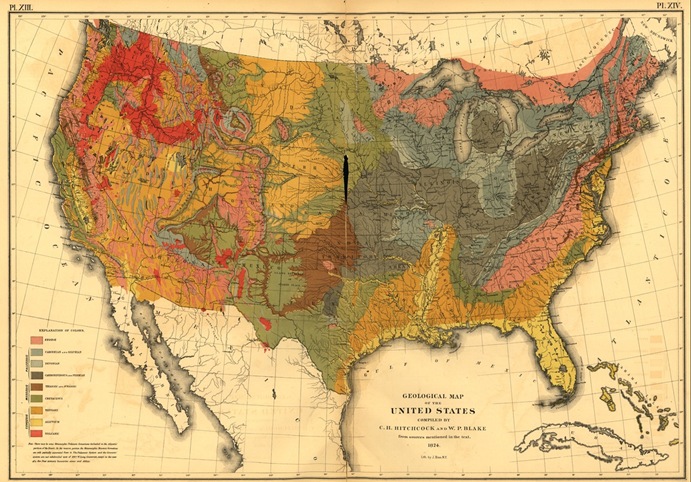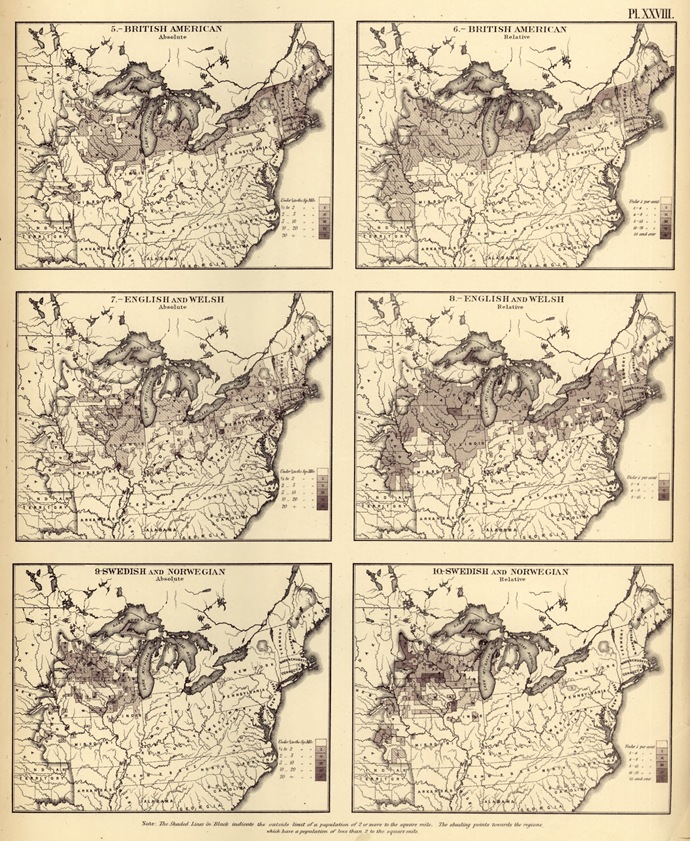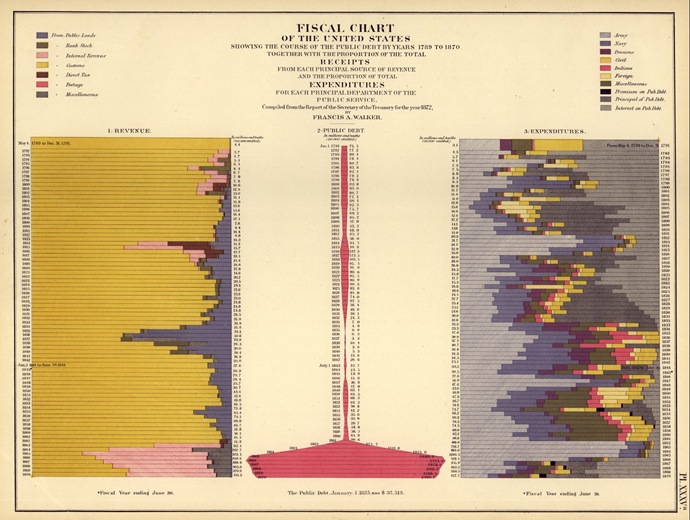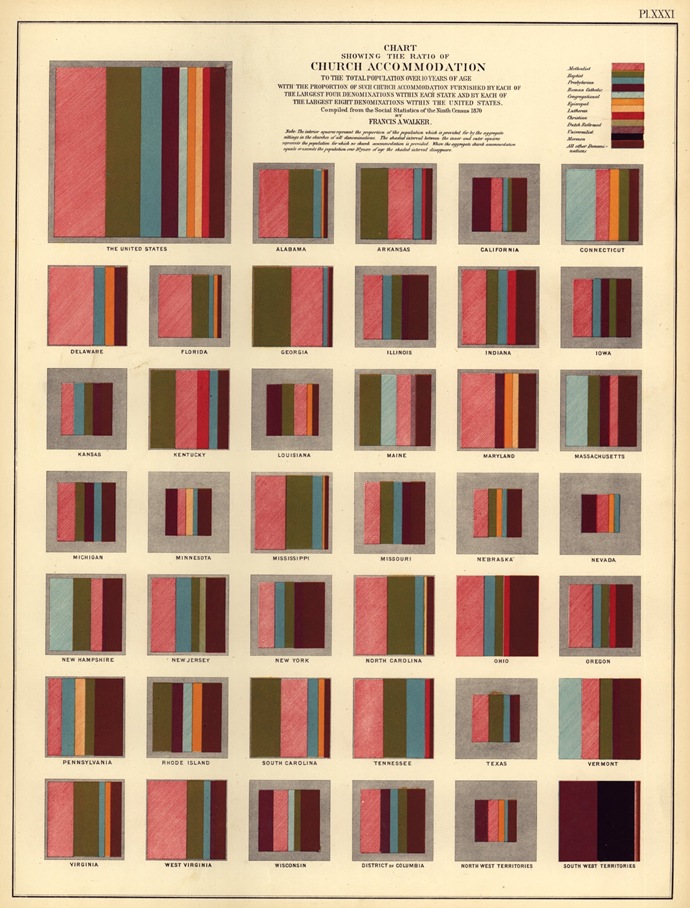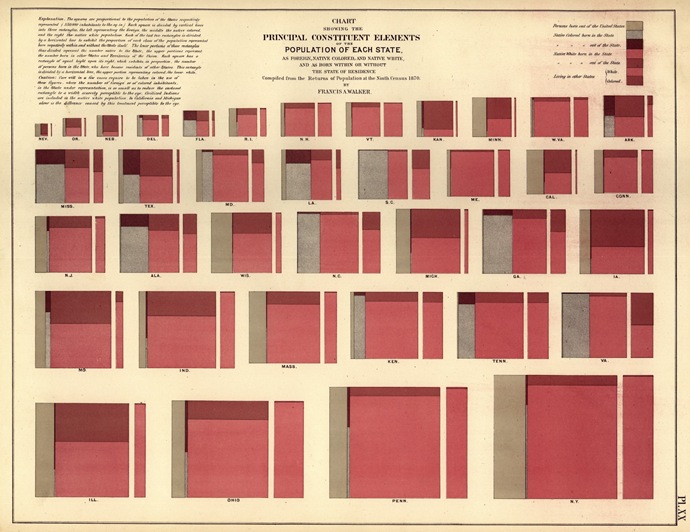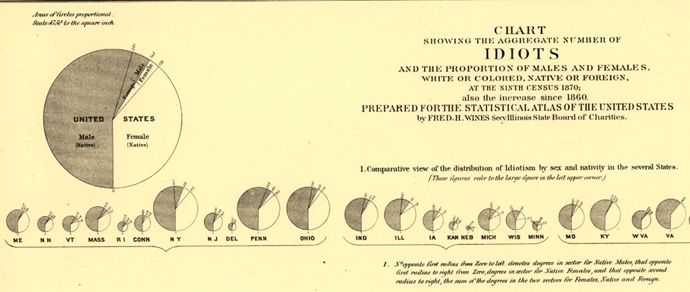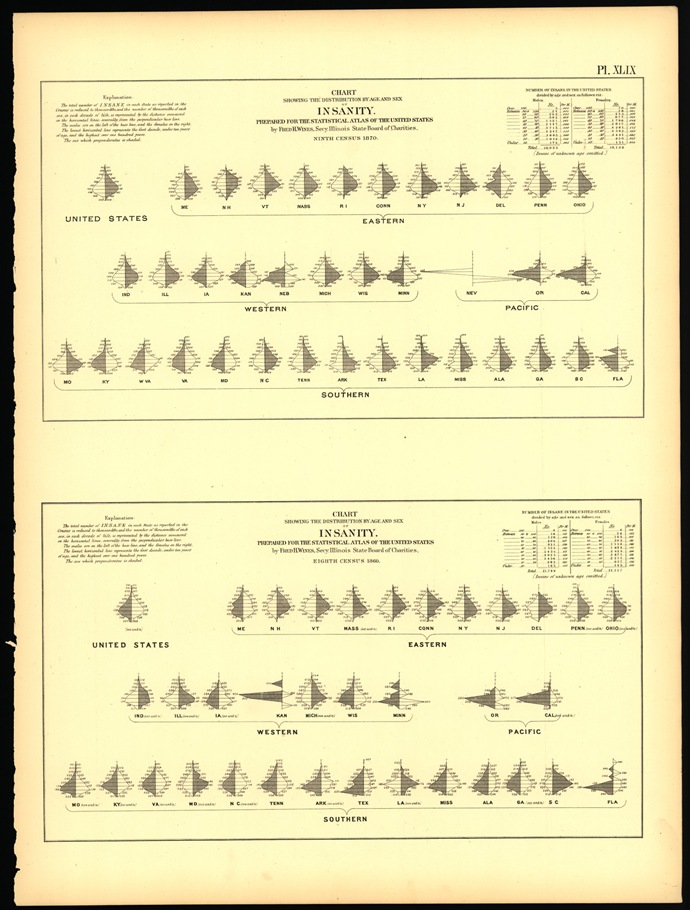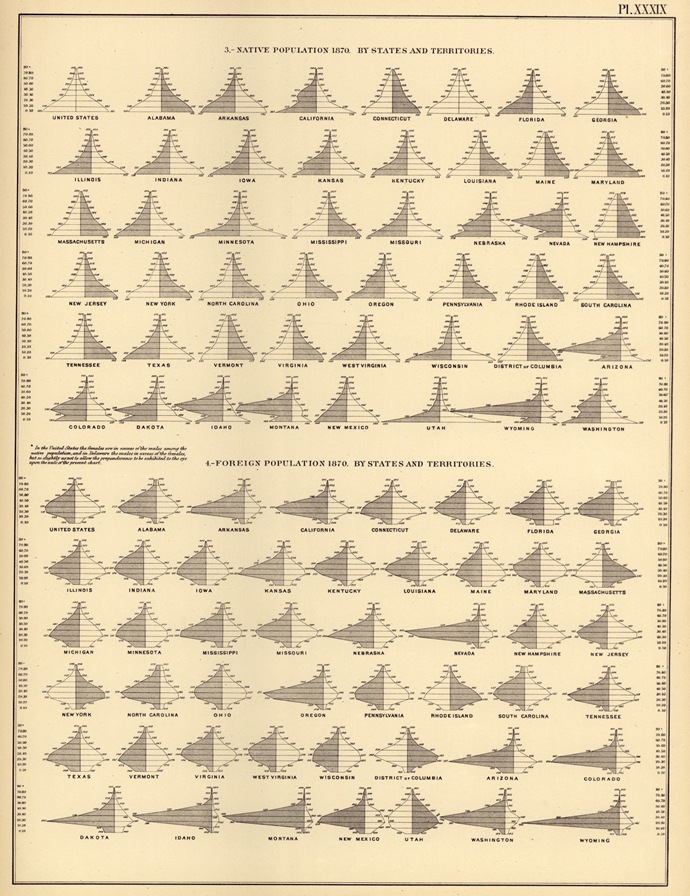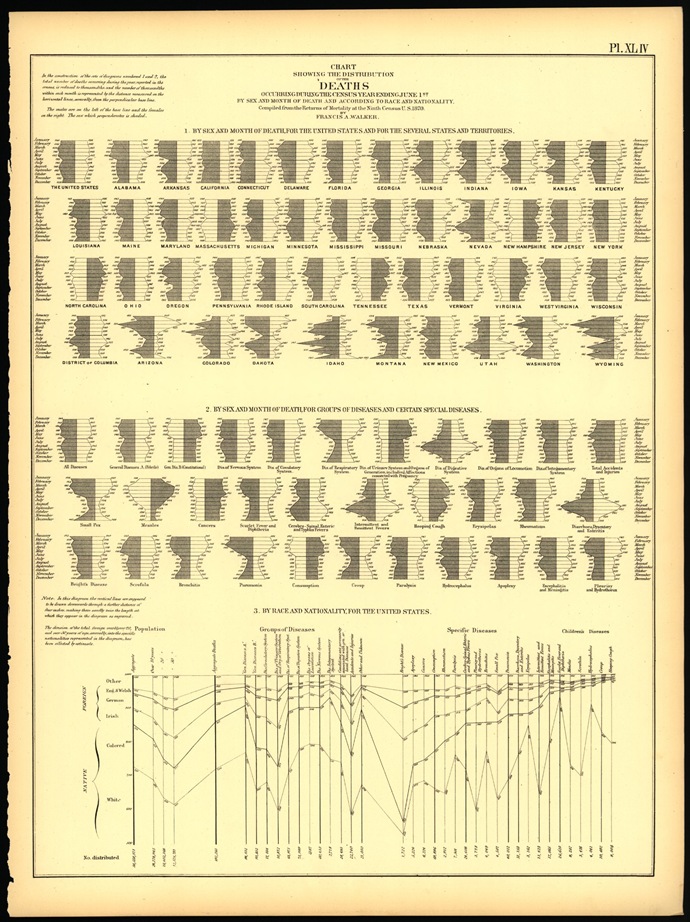FastCompany has a great article this week on the results of the 1830 census, and the hand-made graphics (“BI –2.0”?) that were made from the data (thanks to RadicalCartography.net and the Library of Congress).
Here’s a selection of my favorites – click on each one to get the full graphic.
US geology – the hand-shading is so much nicer to look at than computer-generated graphics:
Nationality data mapped:
Here’s a chart that would have looked good on a 19th century Recovery.org website (where, incidentally, data visualization guru Edward Tufte is now a Presidential Advisor). There’s a lot of history illustrated here:
- The light blue spike in the lower right is the US Civil War (1861-1865), which prompted the introduction of a “temporary” progressive income tax (the light pink blob in the lower left) that was originally supposed to expire in 1866!
- The pink blobs on the right are a record of expenditures on the US Indian wars
- The dark blue spike in the middle of the left-hand chart shows land sales in the West – which may have caused the collapse of the banking system in 1837
This is a beautiful rendering of church-going in the US. Interestingly, rather than show non-churchgoers as separate bar, they are relegated to a grey box around the outside.
Here’s a nice example of showing data through proportions.
And here’s proof that men are bigger idiots than women! (of course, they meant what we’d call “mentally ill” these days)
Population charts showing that the “cowboy states” (e.g. Wyoming, Nevada, Montana) were populated by young male foreigners, while Utah had LOTS of children.
This chart is a good example of something that hasn’t changed much in the last couple of centuries – the notion that you should show data just because you have it. For example, Chart 1 below show deaths per month per state. Is this data actionable in any way?


